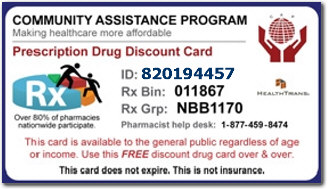Dec. 14th 2009
The American Academy of Pediatric Dentistry (AAPD), the recognized leader in pediatric oral health, announced new oral health guidelines for expectant mothers and infants following its 62nd Annual Session in Honolulu, Hawaii. The guidelines call for all pregnant women to receive counseling and oral healthcare during pregnancy, and also that infants receive an oral health risk assessment and oral care by their first birthday. These steps will contribute to optimal oral health for both mom and baby.
“There is evidence associating periodontal disease and increased risk of preterm birth and low birth weight,” said AAPD’s Immediate Past-President Dr. Beverly Largent. A recently published study found significant differences between women treated for periodontal disease and those who were not treated. The findings suggest that incorporating periodontal care may result in improved pregnancy outcomes.
“Because premature births have become the number one obstetric problem in the United States, we felt the need to provide more guidance about necessary oral care for expectant moms, in addition to promoting oral health as a key part of pregnant women’s overall health,” said Largent.
The guidelines are based on studies that suggest that proper dental care during the perinatal period may help prevent preterm and low birth-weight babies and is an important aspect of overall health for pregnant women – allowing them to enter delivery in optimal health. Many women, however, are unaware of the implications poor oral health can have on themselves and their babies and often don’t seek oral care during pregnancy.
Additionally, mothers with poor oral health may be at greater risk of infecting their children with the bacteria that causes cavities, increasing their children’s caries risk at an early age. Because cavities in infants are preventable, determining which mothers are at the highest risk improves opportunities for preventive intervention.
“Every expectant mother should receive a comprehensive oral health evaluation and risk assessment,” said Largent. “Dental treatment is safe throughout pregnancy, and this is a time when expectant mothers need to be screened for oral risks, counseled on proper oral hygiene and receive necessary dental treatment.”
The updated guidelines also address proper oral care for infants and toddlers, the age group most susceptible to early childhood caries (ECC), which is an infectious but preventable disease that causes tooth decay and potentially more serious health issues. When left untreated, ECC can affect speech and communication, eating and dietary nutrition, sleeping, learning, playing, and quality of life – even into adulthood. The guidelines outline how simple changes in a mother’s oral hygiene, diet, use of topical fluoride and sharing of eating utensils can significantly reduce a child’s risk for ECC.
Additionally, because physicians, nurses and other health care professionals see expectant or new mothers and their infants on a regular basis, the AAPD guidelines also encourage health care professionals to talk to their patients about proper oral care. In addition, the AAPD recommends that curriculum at medical, nursing and allied health professional programs include education in perinatal and infant oral health.
For more information on perinatal and infant oral health or to view the updated guidelines, visit http://www.aapd.org. Ssource: http://www.aapd.org/media/pressreleases.asp?NEWS_ID=1018
 Get your FREE prescription drug discount card You can save from 10% to 85% on the cost of both brand name and generic prescriptions immediately.
Get your FREE prescription drug discount card You can save from 10% to 85% on the cost of both brand name and generic prescriptions immediately. 
